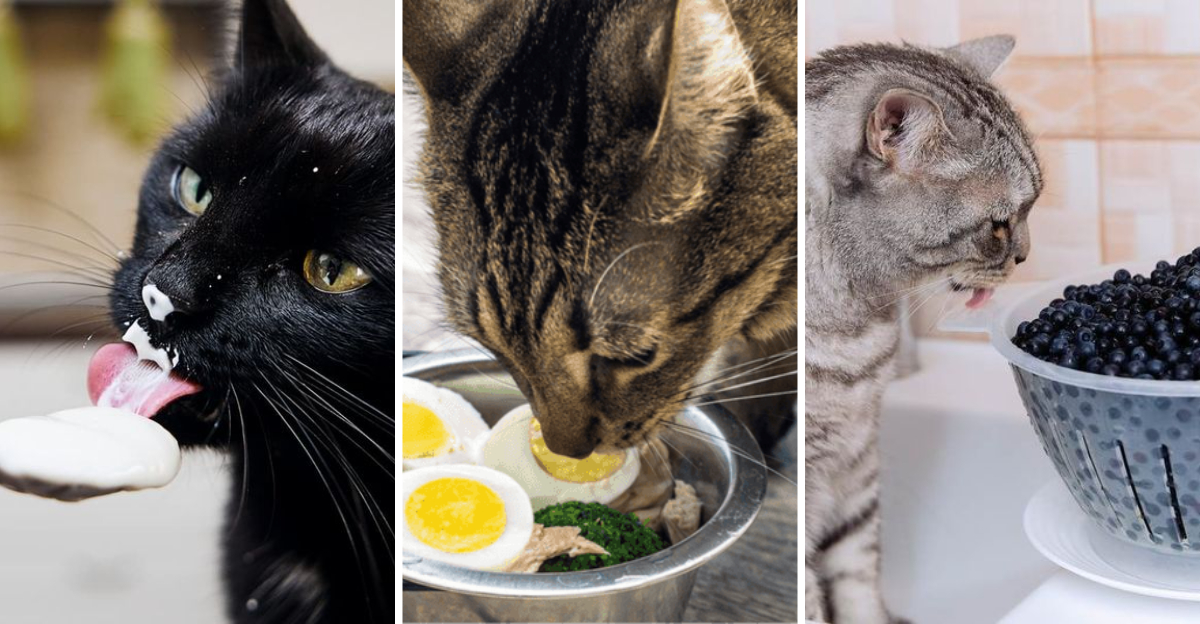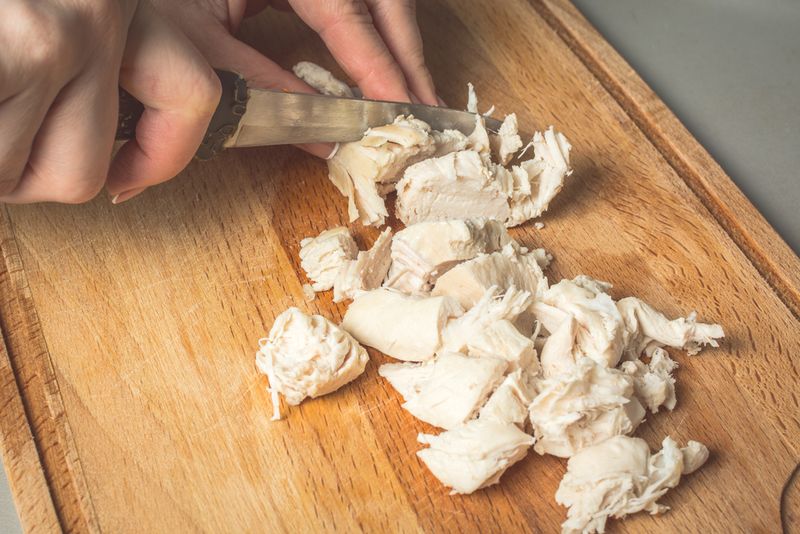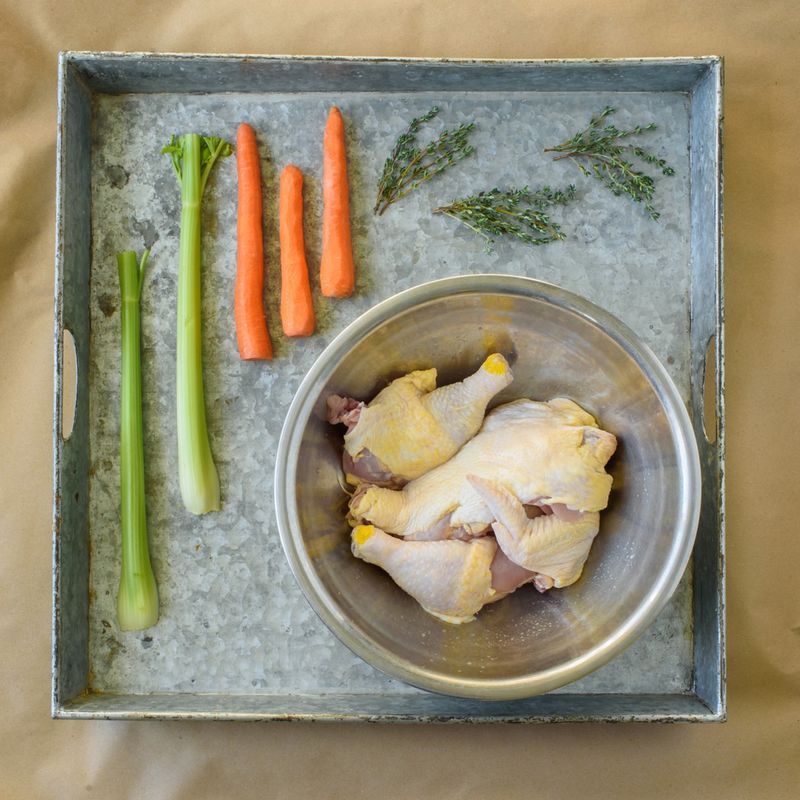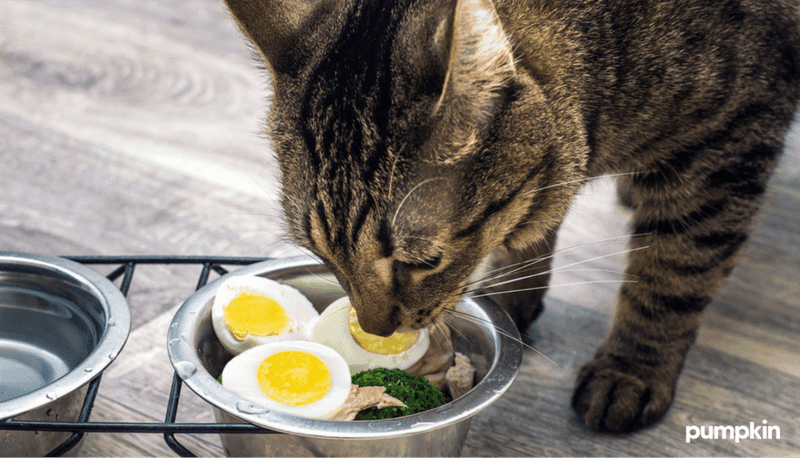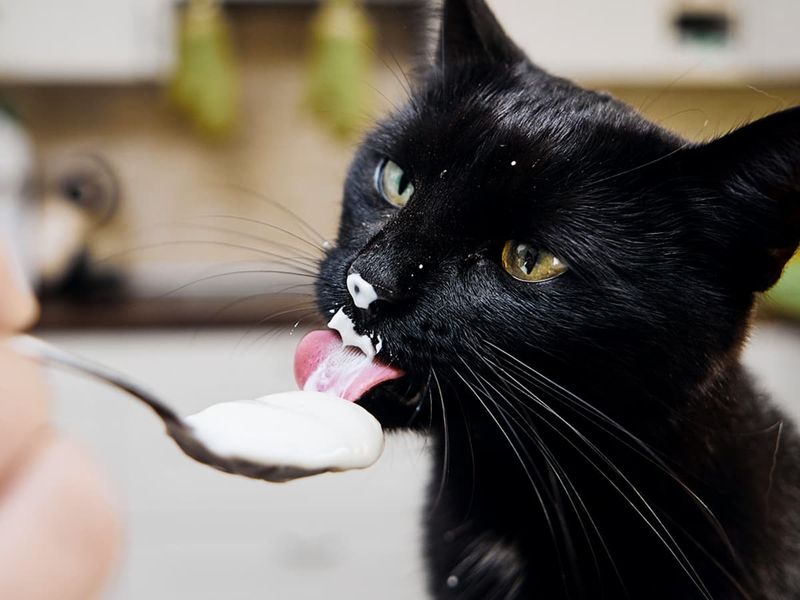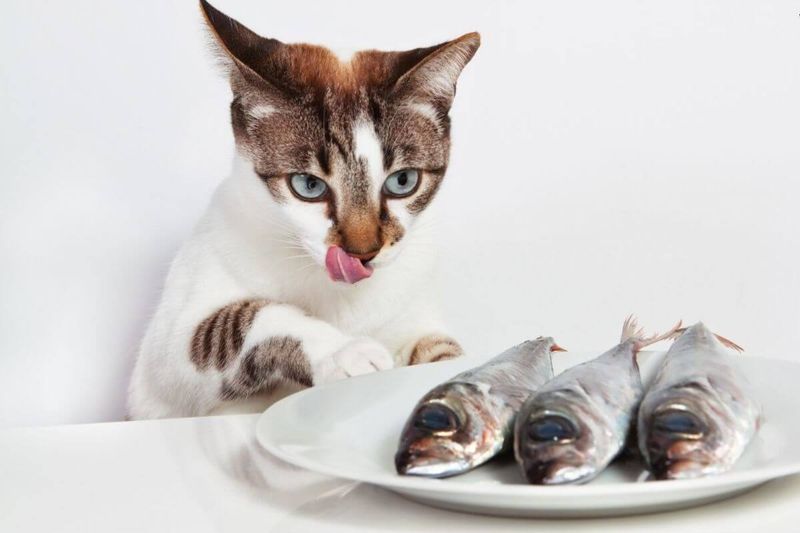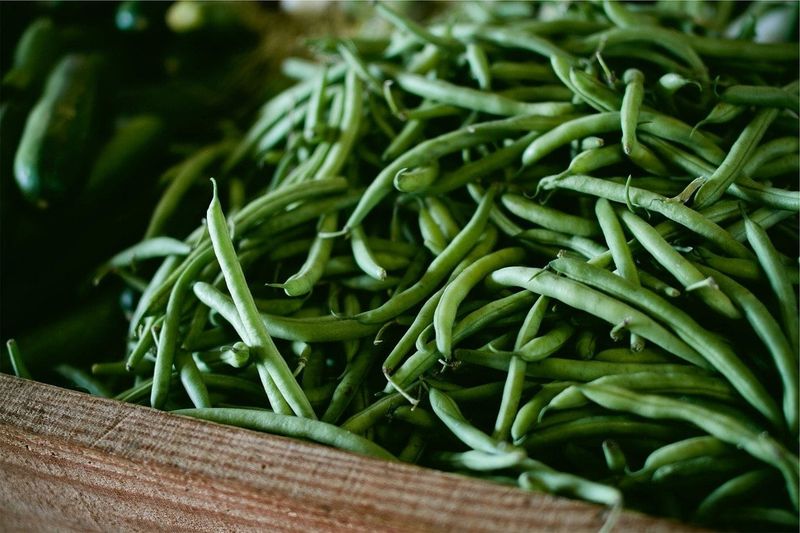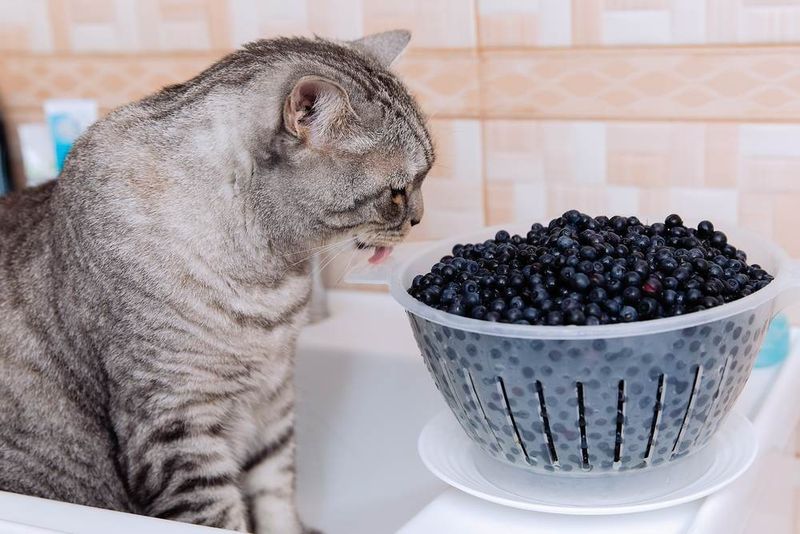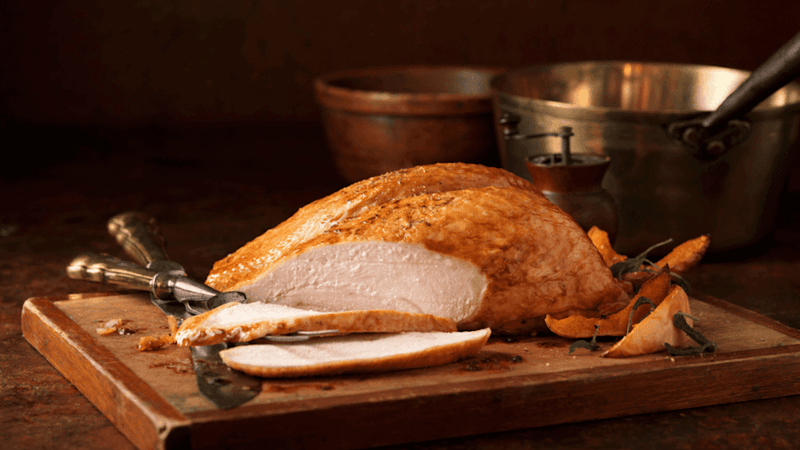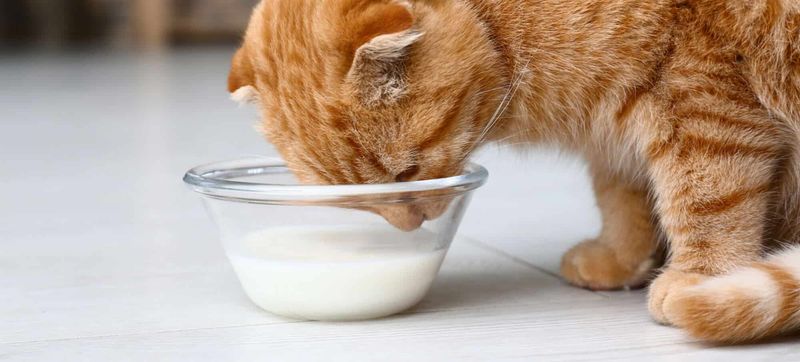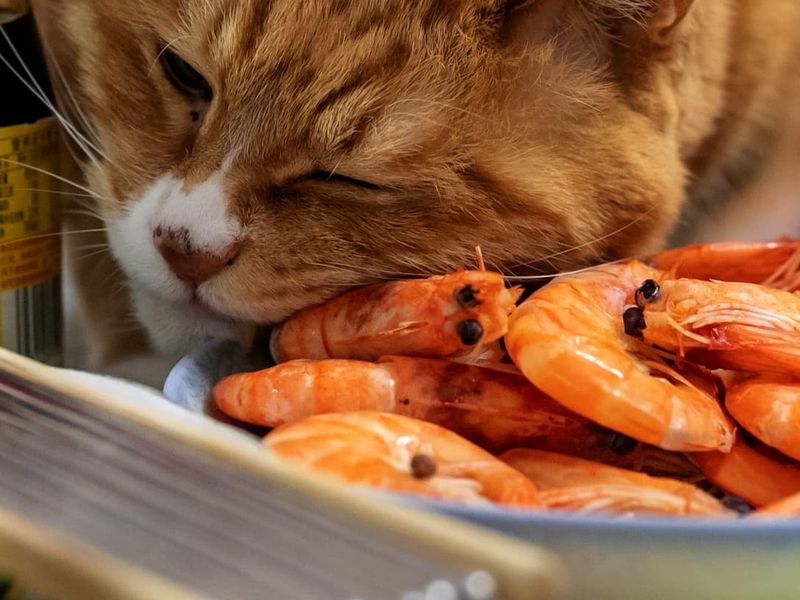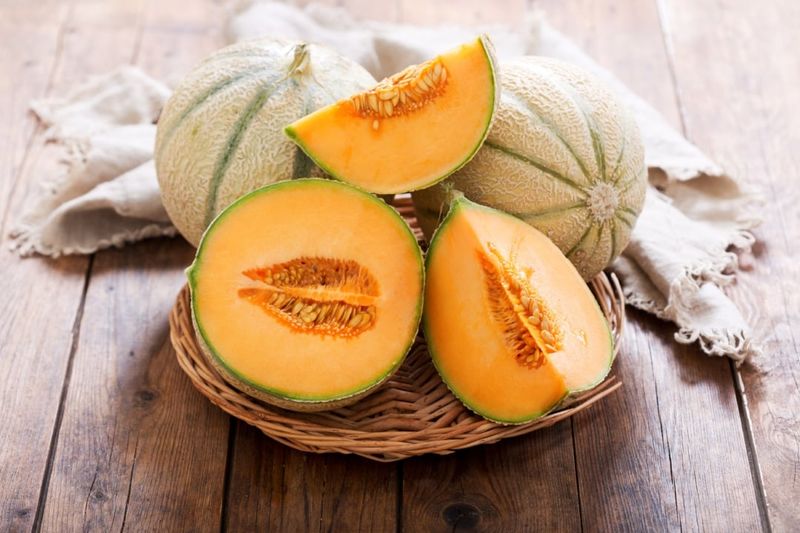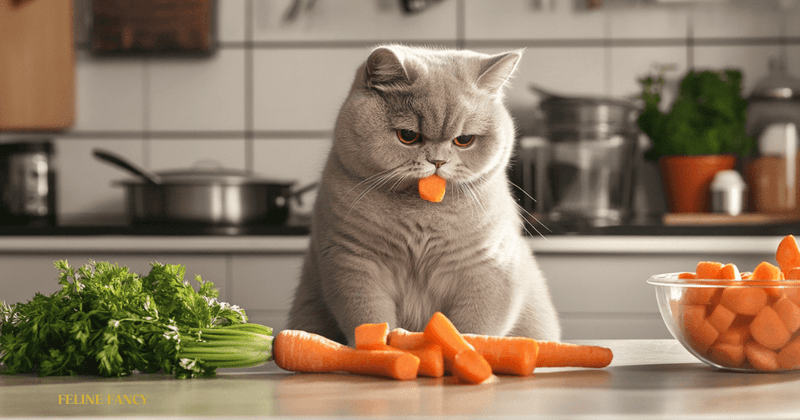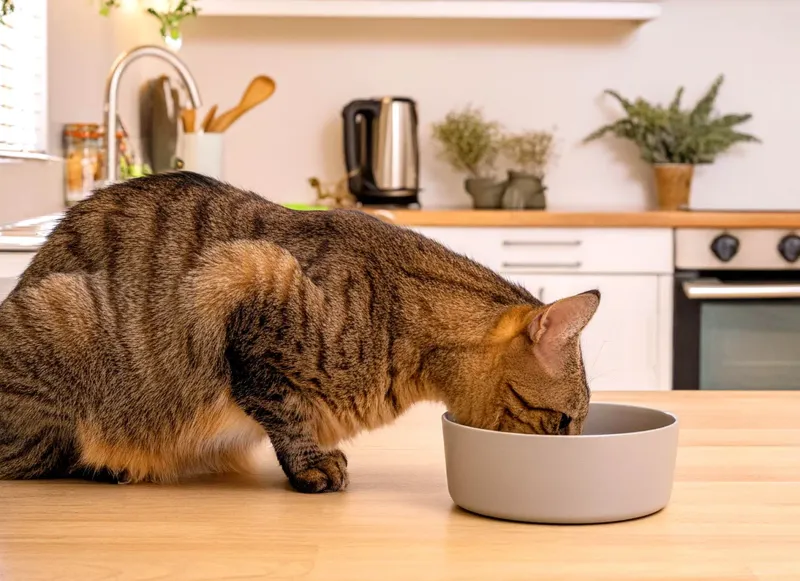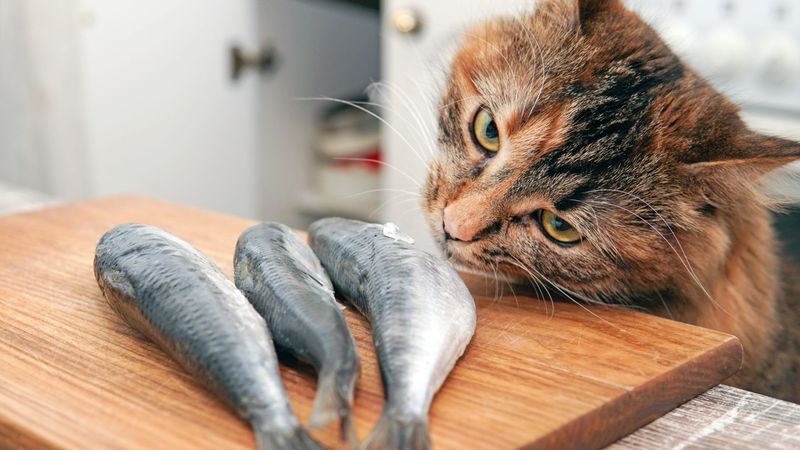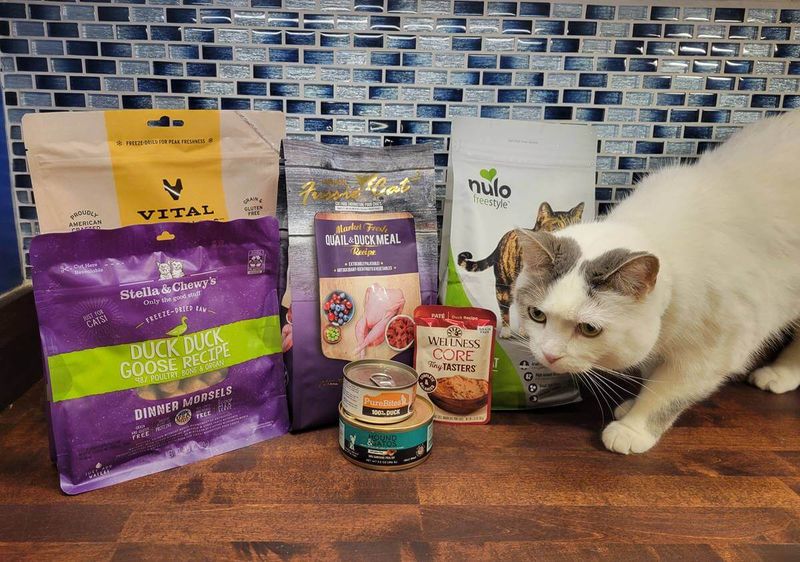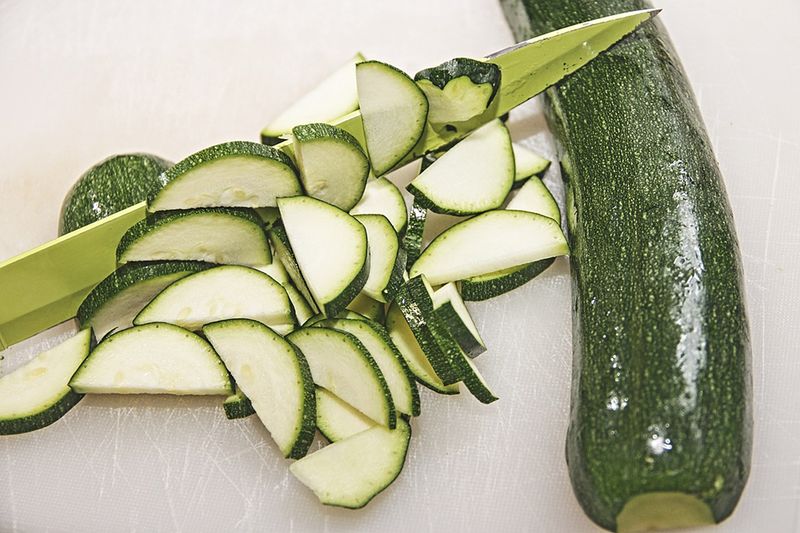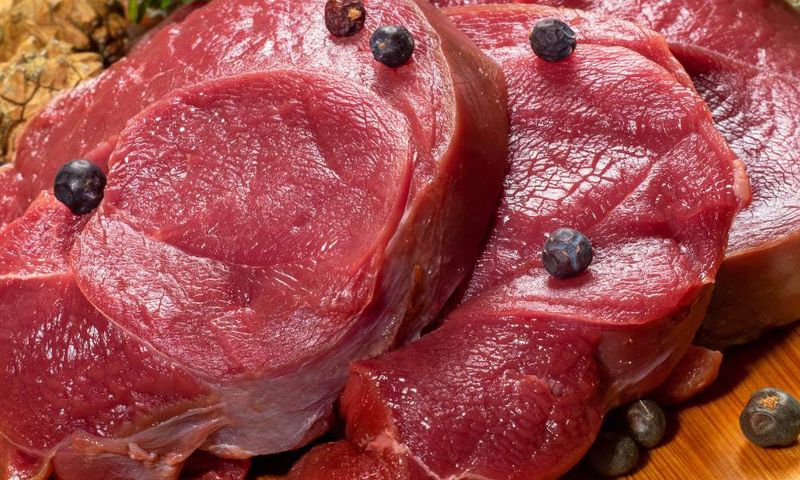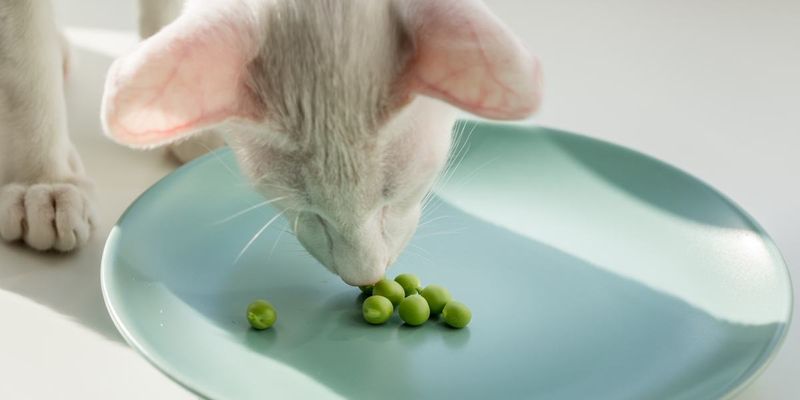📖 Table of Content:
- 1. Cooked Chicken
- 2. Salmon
- 3. Pumpkin Puree
- 4. Bone Broth
- 5. Eggs
- 6. Plain Yogurt
- 7. Sardines
- 8. Green Beans
- 9. Liver
- 10. Blueberries
- 11. Cooked Turkey
- 12. Spinach
- 13. Goat Milk
- 14. Cooked Shrimp
- 15. Cantaloupe
- 16. Cooked Carrots
- 17. Rabbit Meat
- 18. Cod
- 19. Cooked Oatmeal
- 20. Duck
- 21. Zucchini
- 22. Venison
- 23. Peas
Cats are obligate carnivores with specific dietary needs that many commercial foods don’t fully address. Adding healthy, cat-safe foods to your feline friend’s diet can boost their health, increase energy levels, and potentially add years to their life. Whether you have a picky eater or a food-motivated kitty, these nutritious additions will help them thrive.
1. Cooked Chicken
Plain, boneless chicken provides high-quality protein that cats naturally crave. Their bodies use this lean meat to build strong muscles and maintain healthy organ function. Always serve chicken well-cooked without skin, bones, or seasoning. Avoid rotisserie chickens which contain harmful spices and excessive salt. Many veterinarians recommend chicken as a dietary supplement for cats recovering from illness or those who need weight management. Just a tablespoon mixed with regular food can entice finicky eaters while providing essential amino acids.
2. Salmon
Rich in omega-3 fatty acids, salmon supports your cat’s skin health and creates a lustrous coat that shines with vitality. These essential fats also reduce inflammation and may help cats with joint problems. Serve salmon cooked thoroughly without seasoning. Never offer raw salmon as it may contain parasites dangerous to felines. A weekly salmon treat—about the size of your fingertip—provides enough beneficial oils without overfeeding. Canned salmon packed in water (not oil) makes a convenient option when bones are removed.
3. Pumpkin Puree
Unsweetened pumpkin puree works wonders for cats with digestive issues. The soluble fiber regulates bowel movements, helping with both constipation and diarrhea—a truly versatile digestive aid. Start with just a half-teaspoon mixed into food, gradually increasing to one teaspoon if needed. Always use plain pumpkin, never pie filling which contains harmful spices and sugar. Beyond digestive benefits, pumpkin offers vitamins A and C plus potassium. The subtle sweet flavor appeals to many cats, making this orange superfood an easy addition to their regular meals.
4. Bone Broth
Homemade bone broth delivers collagen and nutrients in a form cats find irresistible. The savory liquid supports joint health and provides gentle hydration for cats who don’t drink enough water. Prepare it by simmering chicken or turkey bones with water for several hours, then removing all bones. Avoid onions, garlic and salt which are toxic to cats. Freeze bone broth in ice cube trays for convenient portions. Thaw a cube as a special drink, pour over kibble to increase moisture intake, or use to entice cats during illness when appetite wanes.
5. Eggs
Scrambled eggs provide complete protein packed with essential amino acids cats need. The egg’s yolk contains biotin, promoting healthy skin and reducing excessive shedding. Serve eggs fully cooked without butter, salt, or seasonings. Raw eggs pose salmonella risks and contain an enzyme that interferes with vitamin B absorption. A tablespoon of scrambled egg once or twice weekly makes an excellent protein boost. Some cats with sensitive stomachs tolerate eggs better than other protein supplements, making this breakfast staple a gentle nutrition enhancer for finicky felines.
6. Plain Yogurt
A dollop of plain, unsweetened yogurt introduces beneficial probiotics to your cat’s digestive system. These friendly bacteria support gut health and may strengthen immune function. Choose full-fat, unflavored yogurt with active cultures. Many cats enjoy the creamy texture, though some may show initial hesitation due to its tangy flavor. Start with just a quarter-teaspoon to test tolerance, as some cats are lactose sensitive. For those who digest it well, yogurt can help restore intestinal balance after antibiotic treatment or during digestive upsets.
7. Sardines
Small sardines pack enormous nutritional benefits into bite-sized portions. These tiny fish deliver omega-3 fatty acids, vitamin D, and calcium—especially beneficial for senior cats with aging joints and bones. Choose sardines packed in water without added salt. Remove any sharp bones before serving a quarter of a sardine as an occasional treat. The strong fishy smell that humans might find overwhelming is precisely what makes sardines so appealing to cats. Their natural hunting instincts are triggered by this potent aroma, often enticing even the most selective eaters to try this nutritional powerhouse.
8. Green Beans
Steamed green beans offer fiber-rich nutrition with minimal calories. For pudgy kitties on weight management plans, these vegetables provide satisfying bulk without contributing to weight gain. Cut beans into small, cat-friendly pieces and serve plain—no butter, salt, or seasonings. The mild flavor rarely provokes rejection, though texture may require adjustment time. Beyond weight control, green beans provide vitamins K and C plus manganese. These nutrients support blood clotting, immune function, and metabolism, making this humble vegetable a surprisingly beneficial addition to your cat’s diet.
9. Liver
Cooked chicken liver offers concentrated nutrition in small servings. This organ meat contains vitamin A, iron, and copper—nutrients essential for vision, blood health, and proper growth. Moderation is crucial with liver. Too much can cause vitamin A toxicity, so limit treats to pea-sized portions once weekly. The rich flavor makes liver irresistible to most cats, useful for administering medications or encouraging reluctant eaters. Freeze small portions on parchment paper, then transfer to containers for convenient access to this nutritional powerhouse when needed.
10. Blueberries
These tiny berries pack powerful antioxidants that fight cellular damage and may slow aging. For senior cats, blueberries could help maintain cognitive function and overall vitality. Mash a single berry into a paste before offering it. Many cats are intrigued by the unique scent, though the taste preference varies widely among felines. The deep blue pigments that give blueberries their color contain anthocyanins, compounds studied for their anti-inflammatory properties. While cats don’t naturally seek fruit, these berries offer benefits worth introducing in small amounts—perhaps mixed with more familiar foods.
11. Cooked Turkey
Lean turkey meat provides high-quality protein with less fat than some other meats. Its mild flavor appeals to most cats while supporting muscle maintenance and providing essential amino acids. Always serve well-cooked, plain turkey without skin, bones, or seasonings. Avoid processed turkey products which contain harmful preservatives and excessive sodium. Turkey contains tryptophan, which helps produce serotonin—potentially calming anxious cats. A tablespoon of shredded turkey mixed with regular food offers variety without upsetting dietary balance, making mealtime more engaging for your curious carnivore.
12. Spinach
Finely chopped spinach delivers iron, vitamins A and K, plus calcium in a nutrient-dense package. These minerals support blood health, vision, and bone strength in adult cats. Steam spinach lightly to break down oxalic acid, making nutrients more available. Offer just a pinch mixed with regular food, as cats need only tiny amounts of plant matter. Important note: Avoid giving spinach to cats with history of urinary crystals or kidney stones. For healthy cats, however, this leafy green provides beneficial phytonutrients that may help reduce inflammation and support overall wellness.
13. Goat Milk
Easier to digest than cow’s milk, goat milk contains less lactose and smaller fat molecules. Many cats who experience digestive upset with regular dairy can tolerate this alternative. Start with just a teaspoon to test tolerance before offering more. Commercial cat-specific goat milk products are available with added taurine—an essential nutrient for felines. Beyond calcium, goat milk provides hydration for cats who drink insufficiently. The slightly sweet flavor entices many cats, making it useful for hiding medications or encouraging liquid intake during hot weather or mild illness.
14. Cooked Shrimp
Occasional shrimp treats deliver protein, B12, and phosphorus—nutrients supporting energy production and bone health. The distinctive aroma fascinates most cats, making shrimp an effective high-value reward. Serve fully cooked, shell and tail removed, without butter or seasonings. Chop into appropriate sizes to prevent choking hazards, especially for enthusiastic eaters. Shrimp contains taurine, an amino acid cats must obtain from their diet for heart and eye health. While too expensive for daily feeding, a single shrimp divided into training-sized pieces creates multiple opportunities to reward good behavior while providing nutritional benefits.
15. Cantaloupe
Surprisingly, many cats show interest in cantaloupe’s sweet scent and flavor. This melon provides beta-carotene, potassium, and hydration through its high water content. Offer tiny pieces without rind or seeds. The unusual attraction cats have to cantaloupe relates to compounds that mimic amino acids found in meat proteins. While fruit isn’t a natural part of feline diets, cantaloupe’s moisture content supports hydration in cats who drink inadequately. Limited to small, occasional treats, this orange-fleshed melon provides variety and sensory enrichment along with its modest nutritional benefits.
16. Cooked Carrots
Soft-cooked carrots provide beta-carotene and fiber that support vision and digestion. Their slightly sweet flavor appeals to some cats, though acceptance varies widely. Steam carrots until very soft, then mash or puree before mixing a small amount with regular food. Raw carrots are too difficult for cats to digest properly. Beyond nutritional benefits, the texture of cooked carrots can help clean teeth as cats chew. For finicky eaters, try different preparations—some cats prefer pureed carrots mixed into wet food while others enjoy small, soft pieces as separate treats.
17. Rabbit Meat
Rabbit closely resembles what cats would naturally hunt, making it an excellent protein source. Low in fat and high in protein, rabbit supports lean muscle mass while rarely triggering food sensitivities. Serve thoroughly cooked without seasonings. Commercial rabbit-based cat foods exist, but plain cooked rabbit can supplement regular diets occasionally. For cats with food allergies, rabbit often works as a novel protein when beef or chicken causes reactions. Its gamey flavor appeals to feline taste preferences, and the lean profile helps maintain healthy weight in indoor cats prone to obesity.
18. Cod
Mild-flavored cod provides lean protein and essential minerals including selenium and iodine. These nutrients support thyroid function and help protect cells from oxidative damage. Serve thoroughly cooked without oil, breading, or seasonings. Remove all bones carefully before offering small flaked portions. White fish like cod makes an excellent occasional alternative to fattier fish. The delicate texture appeals to many cats, and its relatively neutral flavor works well for introducing fish to hesitant eaters. For cats with sensitive digestion, cod’s simplicity often proves easier to tolerate than more complex proteins.
19. Cooked Oatmeal
Plain, cooked oatmeal provides soluble fiber that supports digestive health. For cats with sensitive stomachs, a small amount can help regulate bowel function and ease constipation. Prepare with water only—no milk, sugar, or flavorings. Allow to cool completely before offering a half-teaspoon mixed with regular food. While cats don’t require grains, the B vitamins in oatmeal support energy metabolism and nervous system function. Not all cats will accept this texture, but those who do may benefit from its gentle fiber and nutrient content when served in moderation.
20. Duck
Flavorful duck meat provides rich nutrition with unique benefits. The higher fat content makes duck especially appealing to underweight cats or those needing calorie-dense nutrition. Remove skin and bones, then serve well-cooked without seasonings. The distinctive taste often appeals to picky eaters who reject other proteins. Duck contains more iron than chicken, supporting healthy blood cell production. For cats with food sensitivities to common proteins, duck offers a less frequently used alternative that may not trigger allergic reactions while still providing complete amino acid profiles.
21. Zucchini
Steamed zucchini provides gentle fiber with high moisture content and minimal calories. For overweight cats, these qualities help create satisfying meals without excess energy intake. Cook until very soft, then finely chop or mash before mixing a small amount with regular food. The mild flavor rarely provokes rejection once cats adjust to the texture. Zucchini contains manganese, potassium, and vitamin C in easily digestible form. While not nutritionally essential for cats, these vegetables add beneficial bulk to the diet, potentially helping cats feel fuller while consuming fewer calories.
22. Venison
Lean venison offers a novel protein source for cats with food sensitivities. Its unique amino acid profile rarely triggers allergic reactions in cats who struggle with common commercial proteins. Serve well-cooked without marinades or seasonings. Ground venison works well mixed with regular food, while small chunks make excellent training treats. Beyond allergy benefits, venison provides iron, zinc, and B vitamins essential for energy production and immune function. The gamey flavor appeals to feline taste preferences, often enticing cats who show disinterest in conventional foods.
23. Peas
Sweet green peas deliver plant-based protein, fiber, and vitamins A, K, and B in tiny packages. Their natural sweetness appeals to many cats, making them easier to introduce than other vegetables. Serve cooked and mashed or whole depending on your cat’s preference. Frozen peas (thawed) often work well as their processing breaks down cell walls for better digestibility. While primarily carnivores, cats can benefit from the lutein in peas, which supports eye health. The fiber content aids digestion, while the protein complements animal sources. For interactive feeding, some cats enjoy batting individual peas around before eating them!
